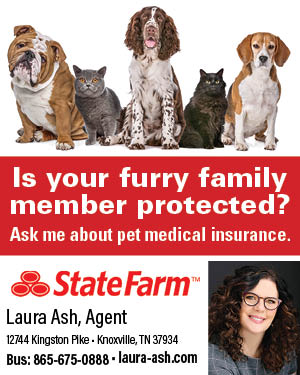Safety first when dealing with natural gas
Reviewing safety measures concerning natural gas is especially important as we approach winter, a Knoxville Utilities Board safety expert said concerning the utility’s 7,369 Farragut customers.
“This time of year folks are starting to light up their pilot lights and getting their furnaces going, and so we really want to get the message out about if they recognize a leak or potential leak, that they contact us immediately so we can get folks out there to do a quick leak investigation,” said Brooke Sinclair, KUB manager of safety, security and technical services.
The slightest smell of natural gas, the so-called “rotten egg odor that we put into our [natural] gas so that customers would smell it at a very low, low level,” is reason enough to call KUB, Sinclair said.
If suspecting a natural gas leak without being sure, “when in doubt just call us [865-524-2911],” Sinclair said.
She also said evidence of a natural gas could be “dead vegetation out in your yard for no other reason; or you might hear a leak, maybe gas escaping out of a pipe.”
The moment a homeowner, business owner or anyone detects what is believed to be a natural gas leak, “Don’t do anything that might cause a spark” and “go to an area where you no longer see, smell or hear natural gas and call us,” Sinclair said.
She stressed leaving the area of a potential leak immediately. “Don’t turn off any lights, do anything to open or close garage doors, just walk out,” Sinclair said.
A subsequent KUB “trained technician … leak investigation” is free, Sinclair added.
To help avoid possible leaks, Sinclair said an annual maintenance check of your residential or commercial natural gas lines and systems using natural gas “with a licensed heating and air contractor” is wise. “We recommend doing that annually in the fall before starting your heating unit up.”
To make sure the heating and air contractor is properly licensed, “Farragut has a licensing board, and I would always check the licensing of my contractor” prior to the inspection hire, Sinclair said.
To clarify where KUB’s responsibilities begin and end concerning line and unit maintenance, Sinclair said, “We install the main [line] and the service line, and all the inspections and pressure testing on that” up to the meter. “You are responsible, from a homeowners perspective, for your fuel line that leads to the meter.”
For a complete review of natural gas safety, including videos, go to: https://www.kub.org/safety/natural-gas-safety/public-safety/.


